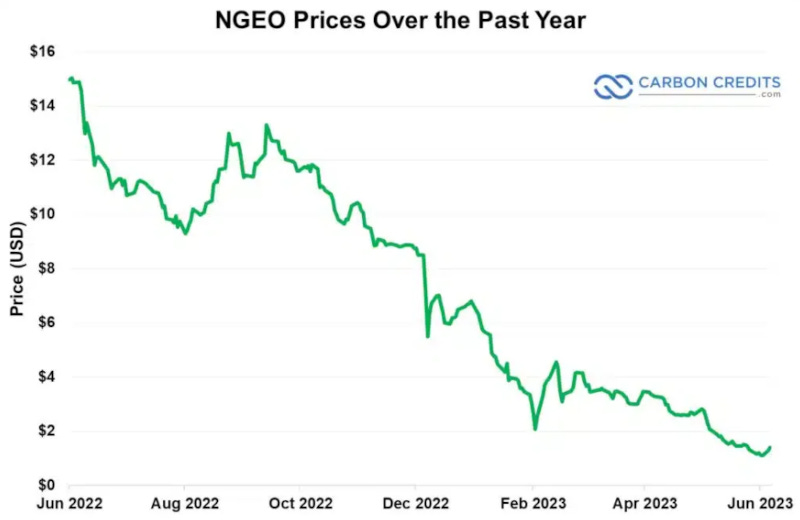Originally published by Chris Lang for REDD-Monitor on June 29, 2023
Dr Joseph Romm is a US writer and climate expert. In 2006, he set up the Climate Progress blog. Three years later, Time magazine described Climate Progress as “one of the most influential global-warming blogs on the Internet”. The blog closed in 2019.
Romm recently joined the University of Pennsylvania Center for Science, Sustainability and the Media as a Senior Research Fellow. His first contribution is a white paper titled, “Are carbon offsets unscalable, unjust, and unfixable – and a threat to the Paris Climate Agreement?”
Romm’s paper is detailed, 50 pages long, and includes 158 footnotes. REDD-Monitor will come back to Romm’s paper in future posts – for example, Romm’s analysis of corresponding adjustments, Natural Climate Solutions, and tree-planting offsets, among other things.
Romm writes that,
Today, every major offset program still has the same exact problems researchers and investigative reports have been identifying for more than two decades. That suggests the core problems are inherent to offsets and intractable – the impossibility of ensuring additionality or of counting them accurately or of solving the double counting problem in a just way.
And Romm concludes that “carbon offsets are unscalable, unjust, and unfixable – and a threat to the Paris Agreement”.
One of Romm’s findings is that, “There is a growing consensus that companies should not be using any offsets they buy from developing countries to make claims about emissions reductions or net zero.”
Romm illustrates the point with a graph showing the collapse in the price of Nature-Based Global Emissions Offsets since June 2022:

“The offset market is broken, and too far gone to fix”
Romm starts with a look at the Clean Development Mechanism. “Recent studies have estimated the CDM may well have led to a substantial increase in CO₂ emissions – 6 billion tons, in the case of one 2021 study,” Romm notes.
The reductions in developing countries would have happened anyway, and the reductions were far smaller than the number of carbon offsets that they generated. On the other hand, the greenhouse gas emissions that rich countries emitted after buying CDM offsets were real.
“One 2018 study explained the mechanism ‘does not reduce global emissions’ by its very design,” Romm writes.
Romm notes that,
[T]he U.N. has failed in the last two decades to prove it can create or run a credible official regulated offset market—the Clean Development Mechanism. The flaws in the CDM have been detailed again and again in the literature and media, yet the UN has failed to fix them.
Romm also looks at the voluntary carbon markets. He argues that the sale of voluntary carbon offsets soared in 2021 to US$2 billion as a result of the Paris Agreement, the increased focus on limiting global heating to 1.5°C, and the large number of countries and companies making net-zero pledges.
In October 2021, the Science Based Targets initiative (SBTi) wrote that nearly 70% of the global economy had committed to net-zero by 2050. But “Net-zero targets are mostly greenwash,” SBTi stated. The net-zero targets focus on “offsets instead of reducing emissions”.
Mark Trexler, who worked on the first offsetting project in 1988, told Romm that, “I don’t think corporate net-zero leads to decarbonization.”
And Barbara Haya, Director of the University of California’s Berkeley Carbon Trading Project, told Romm that, “the offset market is broken, and too far gone to fix.”
Romm’s paper highlights the problems with carbon offsets: additionality and over-crediting; leakage; permanence; and double counting.
Double counting
Romm spends a considerable part of his paper looking at double counting and “corresponding adjustments”, which is the proposed solution to double counting at the UNFCCC level.
He summarises corresponding adjustments as follows: “The buyer gets to pretend the reductions occurred in its country, while the seller must pretend their own emission reductions never occurred at all.”
Romm points out that “The buyer just made achieving their Paris climate commitment easier, while the seller just made achieving theirs harder.”
Barbara Haya told Romm that, “I think corresponding adjustments reveal what’s wrong with the current system, but I don’t think it’s fair and I don’t think it’s what we should be doing.”
Reputational and legal risks
Romm quotes from a February 2023 article in The Drum, a media and marketing website. The article’s headline states that, “Carbon offsets present an emerging risk to advertisers”. The subheading continues on the theme, “Bad practice and questionable science in the voluntary carbon markets mean firms relying on offsetting to hit net zero targets risk greenwashing – and the law might be coming for them.”
Switzerland’s advertising regulator recently upheld complaints against FIFA’s claims that the World Cup was “carbon neutral”. In June 2022, the Netherland’s Advertising Code Commission ruled, for the fourth time that year, that Shell’s adverts were misleading. In October 2022, Shell lost its appeal against the Commission.
And in May 2023, Delta Airlines was sued in California because the company claimed to have committed to being the “first carbon neutral airline globally”.
Romm writes that,
In September 2022, the global law firm Quinn Emanuel issued a 9-page memo to its clients titled, “Carbon Offsets: A Coming Wave of Litigation?” The firm, which has over 1000 lawyers operating in 12 countries, cited a variety of different offset-related lawsuits. It explained, “The VCM’s lack of oversight, combined with the difficulty in accurately measuring the impact of carbon offsets, makes it ripe for litigation.” This is particularly the case because “Regulators, investors, and NGOs are increasingly scrutinizing the quality of offsets used by companies to meet ‘net zero’ goals.”
Romm’s paper is not just a critique of carbon offsetting. He also proposes a solution to the obvious failure of offsetting:
[R]eplace offsets with programs whereby the richer countries and corporations focus on 1) meeting their climate targets by reducing their own emissions and 2) helping the poorer countries reduce their emissions without offset projects.
